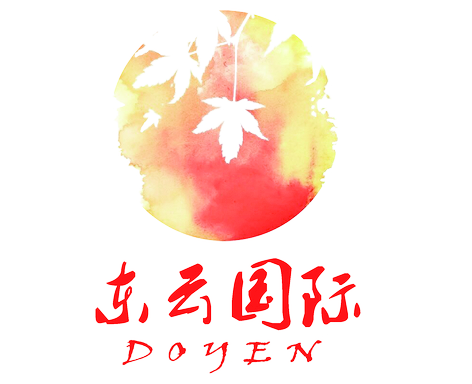Hey everyone! Today we’re diving into a crucial update regarding the Post-Graduation Work Permit (PGWP) in Canada that has been generating a lot of buzz and confusion lately – the “eligible field of study” requirement. Over the past few days, there’s been significant discussion about a subtle yet impactful change on the official Canadian immigration website (IRCC) concerning PGWP eligibility. This seemingly small wording adjustment has big implications for international students, and it’s vital to understand what’s going on. Let’s break it down!
The “Old” Policy
Previously, as archived on February 25th, 2025 (and likely reflecting the policy wording before the recent update), the website stated the following regarding the “Field of Study” requirement for PGWP eligibility:
Field of study requirement:
If you submitted your study permit application before November 1, 2024, there are no field of study requirements.*If you submitted your study permit application on or after November 1, 2024, you must have graduated in an eligible field of study. *
The “New” Policy – Current Update
However, as of today (likely January 9th, 2024, based on the video date), the wording on the IRCC website has been updated. The crucial change is from the “study permit application date” to the “program start date“. The updated wording now reads:
Field of study requirement:
*If you graduated from a program that you started on or after November 1, 2024, you must graduate in an eligible field of study. *If you graduated from a program that you started before November 1, 2024, you don’t need to meet the field of study requirements.
What’s the Big Deal?
This subtle change is actually quite significant and here’s why:
- Closing the “Loophole”: The original wording, based on the “study permit application date,” unintentionally created a loophole. Students realizing the “eligible field of study” was coming into effect could apply for their study permits before November 1, 2024, even if their actual academic programs were starting in 2025 or later. This allowed them to bypass the new field of study restrictions.
- Government’s Intent: The government likely intended for the “eligible field of study” requirement to apply to programs starting after a certain date, not just based on when the study permit application was submitted. This update corrects the wording to reflect that intent. They want to ensure that the PGWP program aligns with specific labor market needs and that graduates in certain (presumably in-demand) fields are prioritized for post-graduation work permits.
- Controlling PGWP Program: This policy shift is another step in the ongoing adjustments to the PGWP program, likely aimed at better managing the influx of international graduates and ensuring the program benefits the Canadian economy effectively.
Impact – Who is Affected?
This change primarily impacts:
- College and Non-Degree Program Students: Students enrolling in college certificate or diploma programs (or similar non-university degree programs) starting after November 1, 2024, are now definitively subject to the “eligible field of study” requirement. Previously, some might have thought they could avoid it by applying for their study permit early.
- Students Starting Programs in 2025 and Beyond: If your academic program, even if you applied for your study permit before Nov 1, 2024, starts on or after November 1, 2024, you will now be assessed under the “eligible field of study” rules for PGWP eligibility.
Uncertainties and Questions Raised
This policy update also brings up some crucial questions and uncertainties:
- Definition of “Program Start Date”: For programs with prerequisite ESL or FSL language courses, it’s unclear if the “program start date” refers to the language course start date or the start date of the main academic program. This needs clarification from IRCC.
- Dynamic “Eligible Field of Study” List: IRCC has stated that the list of “eligible fields of study” is subject to change. This creates uncertainty for students in longer programs (e.g., 3-year diplomas). A program that is considered “eligible” when a student starts might become “ineligible” by the time they graduate, potentially jeopardizing their PGWP eligibility. Conversely, a program currently deemed ineligible could become eligible in the future.
Example Scenario
Let’s say a student planned to start a Business Diploma program in May 2025. Under the old wording, if they submitted their study permit application before November 1, 2024, they might have believed they were exempt from the “eligible field of study” rule for PGWP. Now, with the updated policy, because their program starts in May 2025 (after Nov 1, 2024), they will be subject to the “eligible field of study” requirement. If their Business Diploma is not on the “eligible fields of study” list when they graduate, they may not be eligible for a PGWP.
Conclusion
This policy adjustment, while seemingly minor, significantly increases the uncertainty surrounding PGWP eligibility, especially for students in college and non-degree programs. It emphasizes the importance of:
- Checking Program Eligibility: Carefully research if your intended program falls under the “eligible field of study” list and be aware that this list can change.
- Program Start Date is Key: Focus on your program start date, not just your study permit application date, when assessing PGWP eligibility under the new rules.
- Seeking Professional Advice: It’s more crucial than ever to consult with a registered immigration consultant or lawyer to understand how these changes affect your specific situation and immigration plans.
- Staying Updated: Continuously monitor the official IRCC website for any further updates or clarifications regarding PGWP policies and the “eligible field of study” requirement.
This policy shift highlights the dynamic nature of Canadian immigration policies. International students need to be proactive, informed, and adaptable to navigate these changes successfully.

